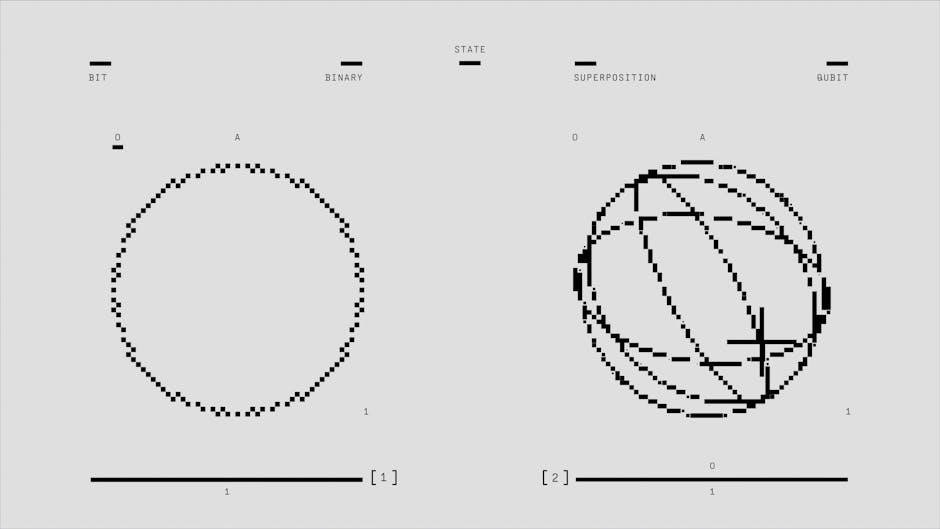The Math 53 Final Exam 2019‚ taught by Professor Canic‚ is a comprehensive assessment of multivariable calculus‚ linear algebra‚ and differential equations. It evaluates problem-solving skills and theoretical understanding‚ serving as a critical milestone in UC Berkeley’s mathematics curriculum. The exam is structured to test analytical thinking and applications of key concepts covered throughout the course. Students are advised to thoroughly review past exams and practice problems to prepare effectively for this challenging evaluation.
Overview of the Course and Exam Significance
Math 53‚ taught by Professor Canic‚ is a foundational course covering multivariable calculus‚ linear algebra‚ and differential equations. The final exam evaluates students’ command of these topics‚ assessing their ability to apply theoretical concepts to practical problems. Its significance lies in providing a comprehensive assessment of analytical and problem-solving skills‚ essential for academic and professional growth in mathematics and related fields.
Structure of the Math 53 Final Exam 2019
The exam consists of six problems‚ designed to test problem-solving skills and theoretical understanding. It is a 3-hour assessment‚ evaluating knowledge of multivariable calculus and linear algebra concepts.
Exam Format and Timing
The Math 53 Final Exam 2019 is a 3-hour closed-book assessment consisting of six problems. Students must solve all questions to the best of their ability‚ demonstrating clear problem-solving skills and understanding of key concepts. The exam focuses on multivariable calculus‚ linear algebra‚ and differential equations‚ with an emphasis on applying theoretical knowledge to practical problems. No electronic devices or external materials are permitted during the exam.
Sections and Question Types
The Math 53 Final Exam 2019 is divided into several sections‚ each targeting specific skills and knowledge. Questions range from short-answer problems to lengthy proofs and applications. The exam includes both computational and theoretical questions‚ designed to assess understanding of multivariable calculus‚ linear algebra‚ and differential equations. Students are expected to demonstrate clear reasoning and precise mathematical communication in their solutions.

Key Topics Covered in the Math 53 Final Exam
The exam covers multivariable calculus‚ including partial derivatives and multiple integrals‚ linear algebra‚ focusing on matrices and vector spaces‚ and differential equations‚ emphasizing solutions and applications.
Multivariable Calculus Concepts
The exam emphasizes multivariable calculus‚ including partial derivatives‚ multiple integrals‚ and vector calculus. Students are tested on gradient‚ divergence‚ and curl operations‚ as well as parameterized curves and surfaces. The exam also covers optimization techniques‚ Lagrange multipliers‚ and the application of Stokes’ and Green’s theorems. These concepts are central to understanding complex functions of several variables and their real-world applications in physics‚ engineering‚ and economics.
Linear Algebra Fundamentals
The exam covers linear algebra essentials‚ including vector spaces‚ matrices‚ and linear transformations. Key topics are determinants‚ eigenvalues‚ and eigenvectors‚ as well as orthogonality and diagonalization. Students are expected to solve systems of linear equations and apply matrix operations to real-world problems. Understanding these concepts is crucial for analyzing linear systems and their applications in engineering‚ physics‚ and computer science.
Differential Equations and Applications
The exam includes differential equations‚ focusing on first- and second-order equations‚ systems of equations‚ and initial value problems. Key applications involve modeling population growth‚ mechanical vibrations‚ and heat transfer. Students must solve equations using methods like separation of variables and integrating factors. Understanding these concepts is vital for analyzing dynamic systems and their real-world applications in physics‚ biology‚ and engineering.
Study Resources for Math 53 Final Exam Preparation
Past exams and practice problems are essential study resources. Recommended textbooks and study guides provide comprehensive preparation for the Math 53 final exam.
Past Exam Papers and Practice Problems
Past exams and practice problems are crucial for preparation. Resources like the Women in Math group and instructors provide access to Math 53 materials. Practice problems from final exams and midterms help students familiarize themselves with the exam format and content. These resources are available online‚ including PDF documents and study guides‚ ensuring students can effectively prepare for the challenges of the Math 53 final exam.
Recommended Textbooks and Study Guides
Key resources for Math 53 include textbooks like Calculus (Early Transcendentals) and supplementary guides. Practice exams and solution sets are essential for understanding problem-solving strategies. Additionally‚ study materials like Worksheet38 and Final Exam Practice Problems provide hands-on experience. Online platforms such as Studocu offer summaries and practice materials‚ while UC Berkeley’s Math department resources further support comprehensive preparation for the 2019 Final Exam.

Practice Materials and Final Exam Problems
Past Math 53 exams‚ including 2019‚ offer valuable practice. Resources like Final Exam Practice Problems.pdf and solution sets provide insights into exam structure and problem-solving strategies.
Solution Sets and Grading Criteria
Solution sets for Math 53 provide detailed explanations for final exam problems‚ ensuring clarity and understanding. Grading criteria emphasize accuracy‚ problem-solving clarity‚ and proper application of mathematical concepts. Students can review these sets to align their answers with expected standards‚ improving their performance in subsequent assessments.
Common Challenges and Difficulty Level
Students often find the Math 53 final exam challenging due to its comprehensive nature and application of advanced concepts like multivariable calculus and differential equations. Time management and problem-solving under pressure are significant hurdles. The exam is considered demanding‚ requiring strong foundational knowledge and the ability to integrate multiple topics seamlessly. Past students highlight the need for rigorous preparation to tackle complex problem sets effectively.

Unique Features of the 2019 Final Exam
The 2019 Math 53 final exam featured innovative problem sets and real-world applications‚ reflecting Professor Canic’s emphasis on practical learning. It included challenging questions that integrated multivariable calculus‚ linear algebra‚ and differential equations‚ making it distinct from previous years.
Professor Canic’s Teaching Style
Professor Canic’s teaching style emphasizes deep conceptual understanding and practical applications. His 2019 Math 53 final exam reflected this approach‚ incorporating innovative problem sets that integrated multivariable calculus‚ linear algebra‚ and differential equations. Canic’s method encourages critical thinking and real-world problem-solving‚ making the exam both challenging and insightful for students.
Innovative Problem Sets and Applications
The 2019 Math 53 final exam featured innovative problem sets that applied theoretical concepts to real-world scenarios‚ emphasizing interdisciplinary connections. These problems required students to integrate multivariable calculus‚ linear algebra‚ and differential equations to solve complex‚ practical challenges. Such applications highlighted the exam’s focus on fostering problem-solving skills and preparing students for advanced mathematical and scientific pursuits.
Importance of the Math 53 Final Exam
The Math 53 Final Exam evaluates core mathematical skills‚ ensuring students grasp multivariable calculus‚ linear algebra‚ and differential equations. It is crucial for academic growth and professional development‚ reflecting the ability to apply mathematical concepts to real-world problems and advanced studies.
Assessment of Core Mathematical Skills
The Math 53 Final Exam rigorously assesses core mathematical skills‚ focusing on problem-solving‚ critical thinking‚ and the application of multivariable calculus‚ linear algebra‚ and differential equations. It evaluates students’ ability to analyze complex scenarios‚ apply theoretical knowledge to practical problems‚ and demonstrate a deep understanding of fundamental concepts. This comprehensive evaluation ensures readiness for advanced mathematical studies and real-world applications‚ aligning with Professor Canic’s emphasis on both conceptual clarity and practical proficiency.
Impact on Academic and Professional Development
Success in Math 53 significantly enhances academic and professional prospects. Mastering its concepts‚ particularly multivariable calculus and linear algebra‚ equips students with analytical and problem-solving skills vital for advanced studies in STEM fields. Professionally‚ proficiency in these areas is highly valued in industries like engineering‚ physics‚ and data science‚ making graduates more competitive in the job market and prepared for real-world challenges.

Availability of the Math 53 Final Exam PDF
The Math 53 Final Exam 2019 PDF is accessible online through UC Berkeley’s official archives and platforms like Studocu. It provides detailed insights into the exam structure‚ questions‚ and solutions‚ serving as a valuable resource for students preparing for similar assessments. However‚ access may be restricted due to university policies on exam distribution and copyright protections.
Accessing the Exam Document Online
The Math 53 Final Exam 2019 PDF can be accessed through UC Berkeley’s official archives and platforms like Studocu. Students can search for “Canic Math 53 Final 2019 PDF” on these sites to locate the document. However‚ access may be limited by university policies or require authentication. Additionally‚ some versions may be restricted due to copyright protections‚ requiring students to log in through their university accounts or seek alternative resources. This ensures equitable access while maintaining academic integrity.
University Policies on Exam Distribution
UC Berkeley has strict policies regarding exam distribution to ensure academic integrity. Exams like Math 53 Final 2019 are typically restricted to authorized access‚ requiring authentication through university platforms. Distribution is controlled to prevent unauthorized sharing‚ ensuring fairness for all students. Access is usually granted through official channels‚ balancing student needs with security measures to maintain the integrity of academic assessments.

Student Feedback and Exam Performance
Students generally found the Math 53 Final Exam 2019 challenging but fair‚ with clear questions reflecting course material. Performance varied‚ highlighting the importance of thorough preparation and practice to succeed in this rigorous assessment.
General Reactions to the 2019 Final Exam
Students expressed mixed reactions to the 2019 Math 53 Final Exam‚ with many finding it challenging due to its comprehensive scope and complex problem sets. The exam was praised for its clear questions and relevance to course material‚ but some students noted the need for thorough preparation to manage the difficulty level effectively. Overall‚ the exam was seen as a fair assessment of the skills and concepts covered in the course.
Success Strategies and Time Management Tips
Success in the 2019 Math 53 Final Exam required a combination of thorough preparation and effective time management. Students benefited from practicing past exams to familiarize themselves with the format and question types. Allocating specific time to each problem‚ prioritizing high-weight questions‚ and reviewing solutions post-exam were key strategies. Emphasizing understanding over memorization and staying calm during the exam also contributed to better performance.
The 2019 Math 53 Final Exam‚ led by Professor Canic‚ remains a pivotal assessment of mathematical proficiency. Its comprehensive structure and challenging problems underscore the importance of rigorous preparation and strategic time management. Future students are encouraged to leverage past exams and practice materials to excel in this critical evaluation of their mathematical skills and understanding.
Key Takeaways for Future Students
Future students should thoroughly review past exams‚ practice problems‚ and study guides to excel in Math 53. Understanding multivariable calculus‚ linear algebra‚ and differential equations is crucial. Time management and problem-solving strategies are essential for success. Leveraging Professor Canic’s resources and seeking support from study groups will enhance preparation. Mastery of these concepts will benefit both academic and professional pursuits in mathematics and related fields.
Evolving Nature of Math 53 Curriculum
The Math 53 curriculum continuously evolves to reflect advancing mathematical knowledge and applications. Recent updates emphasize deeper integration of multivariable calculus‚ linear algebra‚ and differential equations with real-world problems. The course incorporates innovative teaching methods and resources‚ ensuring students gain a robust foundation for advanced studies and professional applications in mathematics and related fields.

About Professor Canic and Math 53
Professor Canic is a distinguished instructor at UC Berkeley‚ known for his expertise in multivariable calculus and linear algebra. His contributions to Math 53 have significantly influenced the curriculum‚ ensuring it remains rigorous and relevant for students pursuing advanced mathematical studies.
Biography and Teaching Philosophy
Professor Canic is a renowned mathematician with extensive experience in multivariable calculus and linear algebra. His teaching emphasizes deep conceptual understanding‚ fostering critical thinking through challenging problems. Canic’s approach encourages active student engagement‚ blending theoretical insights with practical applications. His philosophy centers on preparing students for advanced mathematical studies and research‚ ensuring they grasp both foundational principles and innovative problem-solving techniques effectively.
Contributions to the Math Department
Professor Canic has significantly enriched UC Berkeley’s Math Department through his curriculum development and innovative teaching methods. He created comprehensive problem sets and practice exams‚ such as the 2019 Math 53 Final Exam PDF‚ which have become invaluable study resources for students. His commitment to fostering analytical skills and academic excellence has elevated the department’s educational standards and supported student success in advanced mathematics.
